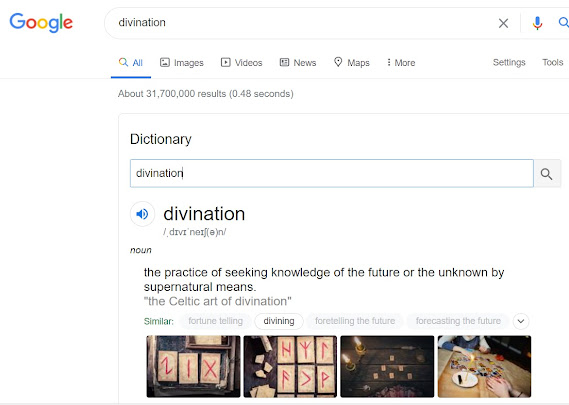Are you baptised with the Holy Spirit?
In Acts 2, we see that on the day of Pentecost, the disciples were baptised with the Holy Spirit. This was the fulfilment of what Jesus told them in Acts 1:8.
In this study you will see the chronological order and establishment of the Church based on the geographical expansion that Jesus spoke of.
"...but you will receive power when the Holy Spirit has come upon you; and you shall be My witnesses both in Jerusalem, and in all Judea and Samaria, and even to the remotest part of the earth." (Acts 1:8).
Jerusalem
However, this would not happen until Christ had been glorified. It is, therefore, sensible for the Lord Jesus to tell the disciples to "wait" in Jerusalem, because prior to this, the Holy Spirit had not been given yet.
But this He spoke of the Spirit, whom those who believed in Him were to receive; for the Spirit was not yet given, because Jesus was not yet glorified. (John 7:39)
The coming of the Holy Spirit, therefore, marks the beginning of the Church Age, which is the beginning of what we call the end times (ἐσχάταις) as spoken of by Joel:
"but this is what was spoken of through the prophet Joel:AND IT SHALL BE IN THE LAST DAYS,’ God says,‘THAT I WILL POUR FORTH OF MY SPIRIT ON ALL MANKIND; (Acts 2:17)
So, in fact, the end times (ἐσχάταις) had already begun since Pentecost in Acts 2. It began on Pentecost Day in Jerusalem after the ascension of Jesus.
Samaria
We then fast forward to Acts 8 where the Samaritans were also baptised with the Holy Spirit.
Now when the apostles in Jerusalem heard that Samaria had received the word of God, they sent them Peter and John, who came down and prayed for them that they might receive the Holy Spirit. For He had not yet fallen upon any of them; they had simply been baptized in the name of the Lord Jesus. Then they began laying their hands on them, and they were receiving the Holy Spirit. (Acts 8:14-17)
Here again, we read the words, "For He had not yet fallen upon any of them..." Although the Holy Spirit had been poured on the Jews in Jerusalem, the Samaritans had not received the Holy Spirit.
Verse 17 continues, "they had simply been baptized in the name of the Lord Jesus." The Greek word for 'simply' is μόνον, an adverb which can also be translated as 'only, alone'. By this time, the Holy Spirit had only been poured out on the Jews, but not the Samaritans or the Gentiles.
Because of this, some claim that being baptized in the Lord Jesus is insufficient; one still needs to be baptized with the Holy Spirit. However, looking at the bigger context, we see that the author of Acts of the Apostles, Luke did not have this in mind.
Instead, we see the progression of the spread of the gospel later to the Gentiles and along with the gospel, the Holy Spirit was poured out on those who believed.
Gentiles
Again, we fast forward to Acts 10, the Gentiles were also baptised with the Holy Spirit. This time, it happened when Peter was still preaching the gospel. It was evidence that this was in response to the word of God being received by faith by Cornelius and the other Gentiles in his house:
While Peter was still speaking these words, the Holy Spirit fell upon all those who were listening to the message. All the circumcised believers who came with Peter were amazed, because the gift of the Holy Spirit had been poured out on the Gentiles also. For they were hearing them speaking with tongues and exalting God. Then Peter answered,“Surely no one can refuse the water for these to be baptized who have received the Holy Spirit just as we did, can he?” And he ordered them to be baptized in the name of Jesus Christ. (Acts 10:44-48)There was no laying of hands and the Gentiles did not have to wait for the coming of the Holy Spirit unlike the early disciples who were told to wait in Jerusalem.
Here, we have a case where the baptism of the Holy Spirit preceded even the water baptism. This clearly shows us that the outpouring of the Spirit followed the expansion of the Church geographically, "in Jerusalem, and in all Judea and Samaria, and even to the remotest part of the earth." (Acts 1:8).
Disciples of John the Baptist
What about Acts 19? Paul encountered twelve men in Ephesus who had not received the Holy Spirit. I want you to note what criterion Paul applied (marked in bold and red) when he asked this question to the twelve men: “Did you receive the Holy Spirit when you believed?”
The reply Paul received was an obvious statement that these men did not even know the Lord Jesus or that He came to baptize with the Holy Spirit. It is, therefore, obvious that these were merely the disciples of John Baptist:
And they said to him, “No, we have not even heard whether there is a Holy Spirit.” And he said, “Into what then were you baptized?” And they said, “Into John’s baptism.” Paul said, “John baptized with the baptism of repentance, telling the people to believe in Him who was coming after him, that is, in Jesus.” When they heard this, they were baptized in the name of the Lord Jesus. (Acts 19:2-5)
As the Jews during Jesus' time were living in disapora, it is not surprising that after they were baptized into John's baptism, these twelve men had returned to their hometown in Ephesus, without even knowing about Jesus. There was a knowledge gap in these followers of John the Baptist.
For this reason, Paul had to explain to them once again the meaning of John's baptism and about the Person, our Lord Jesus, whom they should believe in. This is the reason why Luke said that "they were (subsequently) baptized in the name of the Lord Jesus."
At the same time that they were baptized in the name of the Lord Jesus, Paul "laid his hands upon them, the Holy Spirit came on them, and they began speaking with tongues and prophesying." (More about tongues read this blogpost)
In Paul's Epistles
Throughout His epistles, the apostle emphasized on the criteria for the baptism of the Holy Spirit. In one of the passages, He uses the term 'sealed in Him with the Holy Spirit of promise.'
In Him, you also, after listening to the message of truth, the gospel of your salvation — having also believed, you were sealed in Him with the Holy Spirit of promise, who is given as a pledge of our inheritance, with a view to the redemption of God’s own possession, to the praise of His glory. (Ephesians 1:13-14)
As we have seen from the case of the twelve disciples of John the Baptist, the Holy Spirit was received when they placed their faith in the Lord Jesus according to the gospel Paul preached.
John tells us that:
But as many as received Him, to them He gave the right to become children of God, even to those who believe in His name, who were born, not of blood nor of the will of the flesh nor of the will of man, but of God. (John 1:12-13)
Interpreting this Scripture with another Scripture, we see
For you have not received a spirit of slavery leading to fear again, but you have received a spirit of adoption as sons by which we cry out, “Abba! Father!” The Spirit Himself testifies with our spirit that we are children of God, and if children, heirs also, heirs of God and fellow heirs with Christ, if indeed we suffer with Him so that we may also be glorified with Him. (Romans 8:15-17)
If this is not convincing enough, read further Paul's explanation in Galatians 4:6:
Because you are sons, God has sent forth the Spirit of His Son into our hearts, crying, “Abba! Father!”
After Acts of the Apostles, which showed the progressive movement of the Holy Spirit with the geographical expansion of the Church, no where in the Bible does it tell us to (a) tarry in Jerusalem for the coming of the Holy Spirit (b) receive the baptism after one has personally believed in Jesus as his Lord and Saviour.
To say that one needs to be baptized with the Holy Spirit is to undermine the triunity -- God the Father, God the Son and God the Holy Spirit.
People who insist that born again believers still need to be baptized with the Holy Spirit again after receiving Jesus as their personal Saviour is committing a sin of trying to split the Trinity of God.
For us, we believe that God is One and when we believe in Jesus as our Lord and Saviour, we are automatically baptized with the Holy Spirit.
What then?
This leaves us with the next question. If we receive Christ and we are baptized with the Holy Spirit because of our faith in Jesus, what then?
I have already answered the question about speaking in tongues in another post earlier.
I have already answered the question about speaking in tongues in another post earlier.
The Bible tells us that Holy Spirit can be grieved (Ephesians 4:30) and quenched (1 Thessalonians 5:19). The Holy Spirit is grieved when we sin against God willfully. The Holy Spirit can be quenched when we choose to live by our human nature.
Hence, for believers, the command is clear:
And do not get drunk with wine, for that is dissipation, but be filled with the Spirit (πληροῦσθε ἐν πνεύματι) (Ephesians 5:19)We are told to seek the filling of the Holy Spirit. This is what believers in our Lord Jesus should be seeking for.







Comments
Post a Comment